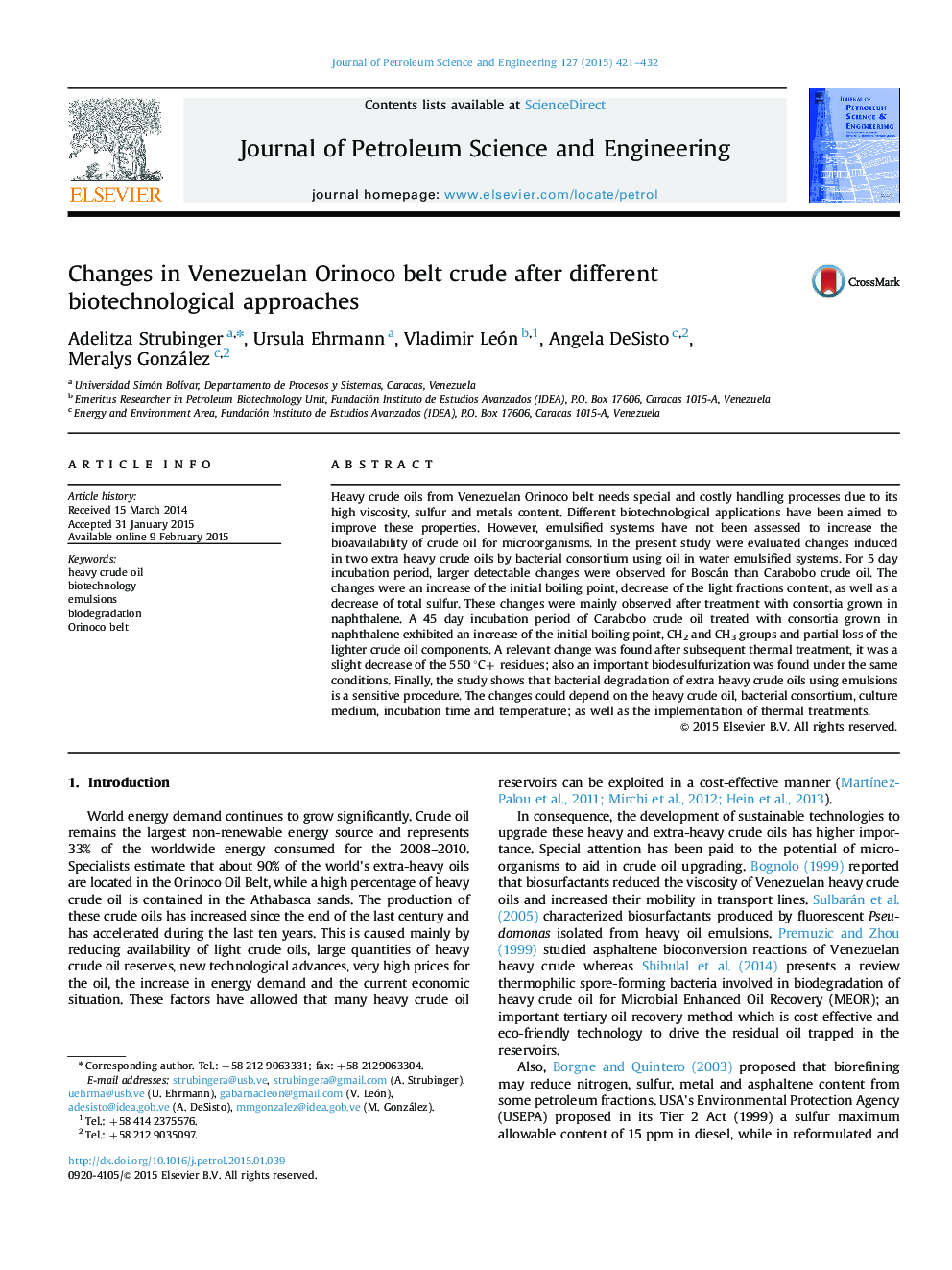| کد مقاله | کد نشریه | سال انتشار | مقاله انگلیسی | نسخه تمام متن |
|---|---|---|---|---|
| 1754888 | 1522814 | 2015 | 12 صفحه PDF | دانلود رایگان |

• Boscán heavy crude oil showed a 13% of biodesulphurization by biotreatment of 5 days.
• Oxidative thermal treatment after biotreatment could promote the molecular cracking.
• The IBP-250° fraction decreased by using heavy crude oils emulsions and biotreatment.
• Carabobo heavy crude oil showed a increase in carbonyl and aromatic indexes by FTIR.
• Performance of biotechnology applications in heavy oil is affected by multiple variables.
Heavy crude oils from Venezuelan Orinoco belt needs special and costly handling processes due to its high viscosity, sulfur and metals content. Different biotechnological applications have been aimed to improve these properties. However, emulsified systems have not been assessed to increase the bioavailability of crude oil for microorganisms. In the present study were evaluated changes induced in two extra heavy crude oils by bacterial consortium using oil in water emulsified systems. For 5 day incubation period, larger detectable changes were observed for Boscán than Carabobo crude oil. The changes were an increase of the initial boiling point, decrease of the light fractions content, as well as a decrease of total sulfur. These changes were mainly observed after treatment with consortia grown in naphthalene. A 45 day incubation period of Carabobo crude oil treated with consortia grown in naphthalene exhibited an increase of the initial boiling point, CH2 and CH3 groups and partial loss of the lighter crude oil components. A relevant change was found after subsequent thermal treatment, it was a slight decrease of the 550 °C+ residues; also an important biodesulfurization was found under the same conditions. Finally, the study shows that bacterial degradation of extra heavy crude oils using emulsions is a sensitive procedure. The changes could depend on the heavy crude oil, bacterial consortium, culture medium, incubation time and temperature; as well as the implementation of thermal treatments.
Journal: Journal of Petroleum Science and Engineering - Volume 127, March 2015, Pages 421–432